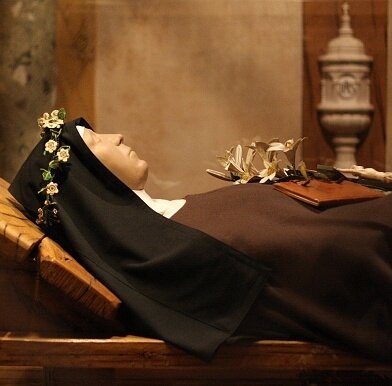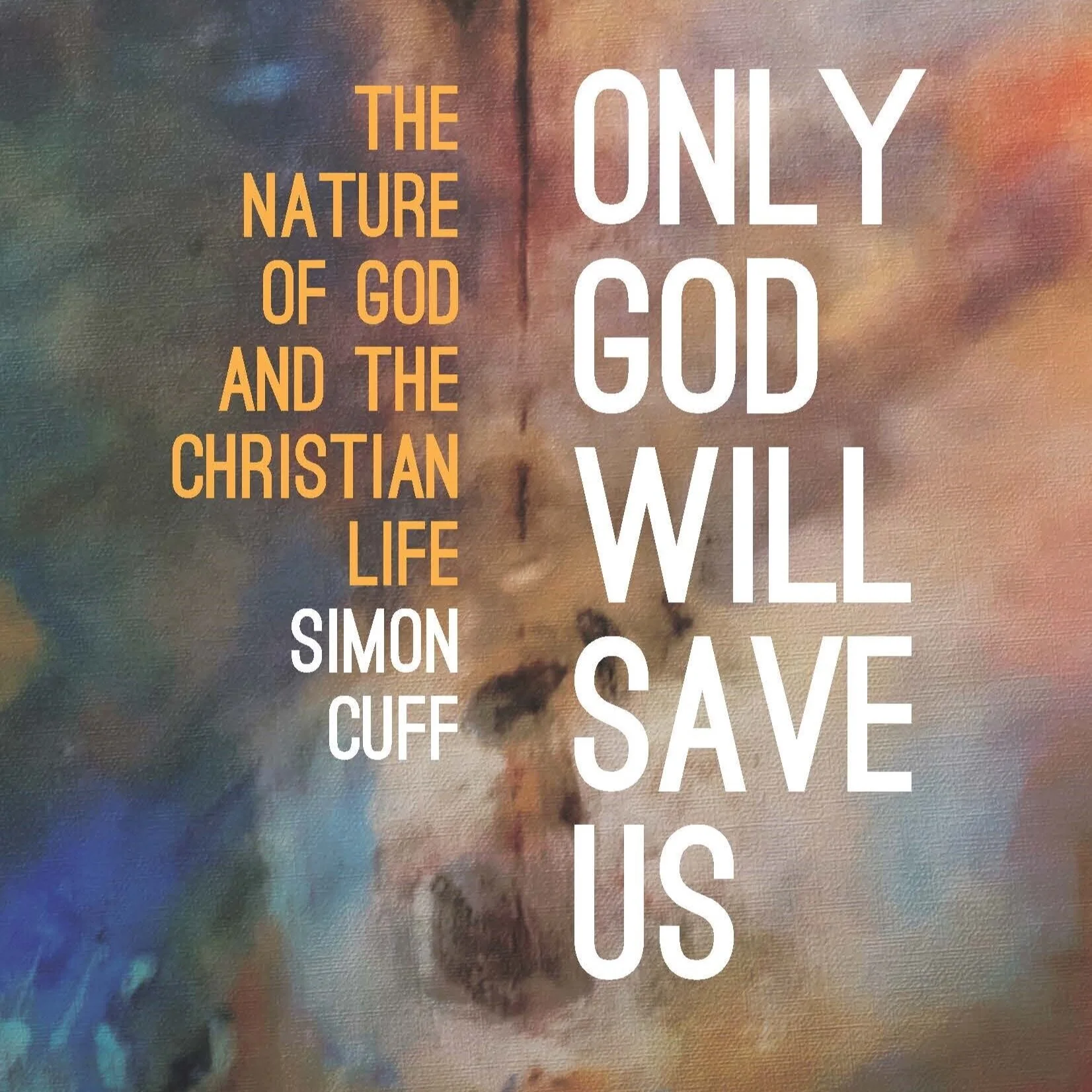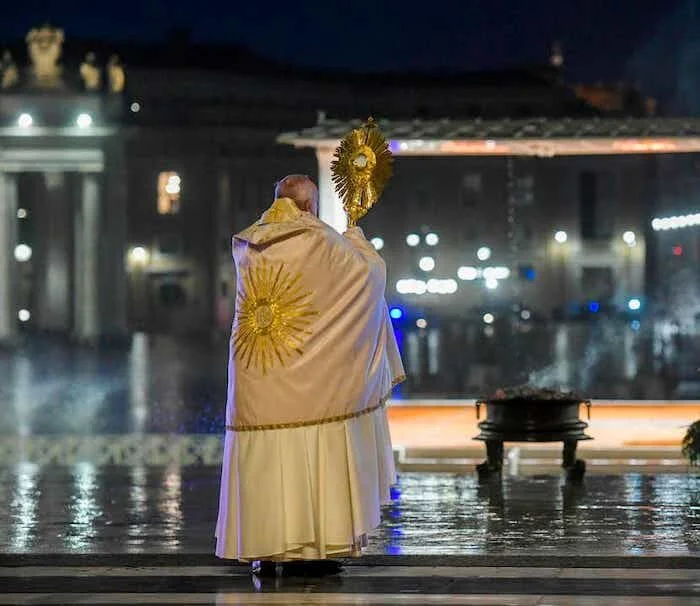August 11 is the feast day of St Clare of Assisi. The Revd Dr Chris Dingwall-Jones writes about her theology of poverty. Fr Chris is Chaplain of Jesus College, Oxford.
Eternity in this Moment: The Spirit of Readiness in the Age of COVID-19
As vaccination efforts are well under-way, at least in the USA and UK, Br Jim Woodrum reflects on mission during the COVID-19 pandemic. Br Jim is a Brother in the Society of St John the Evangelist (SSJE), as Anglican religious community founded in the parish of Cowley, Oxford in 1866. He lives in the community at the SSJE Monastery in Cambridge, Massachusetts.
On 'From Lament to Action': the Archbishops' Anti-Racism Taskforce Report
Earlier today, the Archbishops’ Anti-Racism Taskforce, set up in 2020, released their long-awaited report, providing recommendations to the Church of England for combating racism and promoting racial justice. Fr Jonathan Jong provides commentary on this report.
The School of Theology returns
The School of Theology is pleased to announce our return to regular posting. The Web Editor has been on extended parental leave, made even longer by the pandemic.
In the coming months, we will feature reflections on faith and ministry during lockdown, followed by a supplement to our series on Christian vocation, about the daily lives of clergy in different contexts.
Divine Simplicity Beyond Negative Theology
August 16th marks 14th anniversary of Barry Miller’s death. Miller was a philosopher and Marist priest, and our series on divine simplicity gives us a good opportunity to discuss his work. Fr Jonathan Jong tries to explain Miller’s quite difficult ideas on this topic.
Christian Symbolism: Race and Christian Art
Images of God in Christian art, have regularly reflected a lack of imagination when it comes to the diversity of God’s people. Art, it could be said has a crucial role to play in challenging racial prejudice in the world and in the Church today.
Christian Symbolism: The Pelican in Her Piety
The Physiologus is a strange hybrid of genres, at least to modern eyes. Much as the Gospels are neither quite straightforward biography as we now understand the genre, nor entirely pious fiction, the Physiologus is neither quite natural history nor entirely a collection of just-so-stories.
Christian Symbolism: Angels
Next in our series on Christian symbolism, Mthr Arabella Milbank writes on the depiction of angels and their function and significance in the life of the Church.
Book Launch: Simon Cuff — Only God Will Save Us (SCM Press)
Fr Simon Cuff’s new book Only God will Save Us: The Nature of God and the Christian Life is released at the end of June and is now available to pre-order.
On Trinity and Divine Simplicity
After having provided what he takes to be valid proofs of God’s existence, St Thomas Aquinas takes what is, to modern eyes, a surprising turn. At the start of the third question of the Summa Theologiae, Thomas observes that usually when we have shown that something exists we can go on to ask what that thing is – we’ve discovered the Higgs Boson; great that’s a subatomic particle of a particular sort, it fits into our best physical theories in particular ways, and we can do some more science to find out more about it! But things are not like this with God, thinks Thomas, we cannot know what God is, only what God is not.
Sacraments: Anointing the Sick
These are some of the words given by the Church of England for administering the sacrament of anointing. The sacrament of anointing might be more familiarly known as ‘extreme unction’, but this is misleading. There’s nothing extreme about this Sacrament. Anointing with oil has long been, and continues to be, an important part of the Christian life. As ‘Christians’, we are followers of the ‘anointed one’. […]
Why women should study theology together
The School of Theology’s central mission is to encourage and equip Christians to do theology together. We recognise, however, that the history of Christian theologising has been a heavily gendered one. Even now, there is significant gender imbalance among academic staff in Theology and Religion departments in the UK. This represents an impairment to our goal of doing theology together, that is, with the wealth that diversity brings. In this essay, Charlotte Gibson discusses a way forward, not just by increasing the number of individual women writing theological books, but by women doing theology with one another for the edification of the wider Church.
Jesus the Question, Pt 2: For whom are you looking?
Fr Simon Cuff continues with our Easter reflections this week by considering two further questions Jesus poses: Who do you say that I am? and For whom are you looking? As with the previous entry, this piece began life as addresses at a retreat in Berkeley.
Jesus the Question, Pt 1: Whose head is this, and whose title?
The events of Easter compelled the disciples to reconsider who Jesus was. This question about who Jesus is has endured down the centuries, and remains important even to those who accept the creeds and formularies that the Church has laboured over. In the next two essays, Fr Simon Cuff helps us to meditate on this question.
Pressure points of Holy Week: Reflections in light of Christian anti-Judaism
Even if we are not able to attend Holy Week services this year, we will hopefully be praying alongside each other, contemplating Christ’s passion, death, and resurrection; perhaps we will recall familiar parts of the liturgy, which have made an impression on us. At this, the apex of our penitential season and its resolution, the Revd Prof Daniel Joslyn-Siemiatkoski reminds us to be mindful of the ways in which our liturgical practices might themselves require repentance.
On receiving communion in desire
There has been some kerfuffle since the Archbishops called for churches to close, but whether or not priests are saying masses in their parish churches, most other people will not be receiving communion for a while. This has led to increase talk of “spiritual communion”. Fr Jonathan Jong provides some background to this idea.
A reflection on Mary Szybist’s ‘Annunciation under erasure’
The Annunciation must be one of the most commonly depicted scenes in the history of art. From paintings, to music, to poetry and narrative, the story of Gabriel’s message to Mary—infused with doubt and belief, joy and sorrow, fear and comfort—has proved to be remarkably generative for both the life of faith and the creative impulse. It is a story sharing space with both devastation and hope, and this means it is a story for all of us, whoever we are and wherever we are in life.
On creation and divine simplicity
Divine simplicity is a deceptively named concept. Far from simple, it’s a concept which is difficult to understand. There is good reason for this. At its heart, divine simplicity reminds us that God is like nothing we encounter in creation. Whereas everything we encounter is ‘composite’ or made up of parts, God is not. God is simply God. There are no bits to him or aspects of himself that are prior to him. He is simply what or who he is.
"Thoughts from a Cloistered House"
On Match 17, the Archbishops of Canterbury and York called for a hold on public worship. This is a sensible move as a means of containing the spread of COVID-19 and therefore of protecting those most vulnerable to infection . However, it also brings us great sadness: we Christians who regularly gather around the Lord’s table especially on the Lord’s day, come to share a sacrificial meal in which we are indeed united with the risen Christ. In looking around for what to say about this, we found this brief and moving reflection by Canon Dr Grant Bayliss over at the Cathedral: https://www.chch.ox.ac.uk/blog/thoughts-cloistered-house
On receiving communion in one kind
Yesterday, the Archbishops of Canterbury and York issued a statement about the necessity of suspending the administration of the chalice. This gave Fr Jonathan Jong an opportunity to write about the doctrine of concomitance and the utraquitist controversy in the 15th century.



















